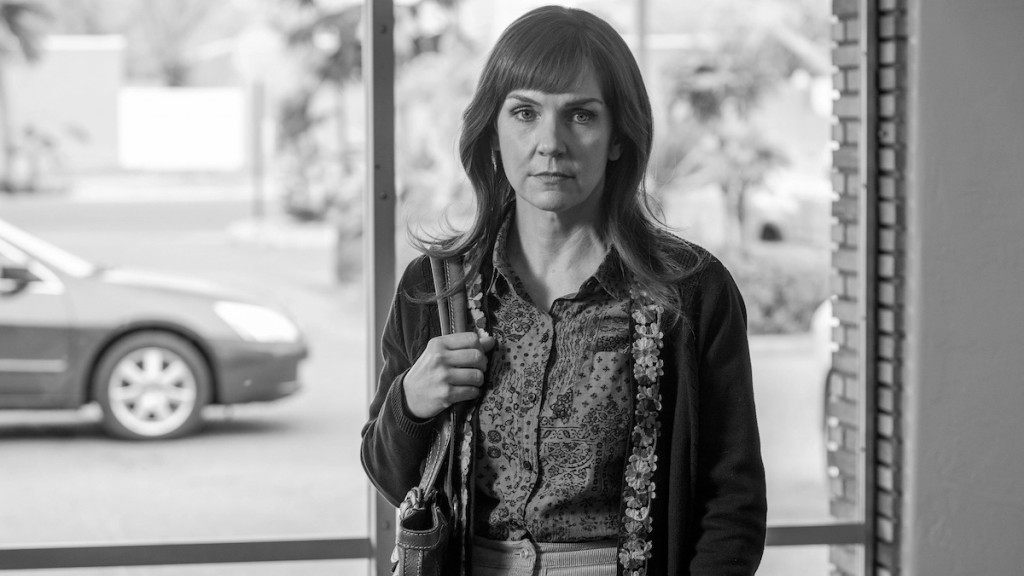Effective storytelling changes you. It can affect your entire body: leaving you shaking, restless, crying, filled with thoughts and feeling but unable to speak. It’s the kind of storytelling that makes you feel a part of it, like it happened to you, or it happened to someone close to you. Some examples include Bong Joon Ho’s Parasite, Mad Men’s “The Suitcase,” when Anna Draper, the only person who really knew the real Don Draper/Dick Whitman dies, Ned Stark’s beheading in the first season of Game of Thrones (the show was very good before it was very bad!), and Breaking Bad’s season four episode “Crawl Space,” when Walter White laughs maniacally underneath his house, making the full transition into a monster.
“Waterworks,” Better Call Saul’s penultimate episode, accomplishes this with a polished cruelty that is incredibly true to its characters. After watching the episode live I felt a lump in my throat. I felt like I vomited out all of my essential organs. It depicts events – and reactions to events – that are not necessarily relatable, but the emotions are.
From the very beginning, Better Call Saul has been building up to this gut-wrenching episode in which Kim Wexler finally breaks down beyond her hard exterior and Jimmy McGill pushes his moral limits. After all this time, the show’s brutal slow burn has exploded into an emotional display of fireworks. The series has never necessarily been a good time, but it always had a tinge of lightness and some comedic relief until now. In the end, Better Call Saul is, in fact, perhaps the most devastating love story ever told.
In “Waterworks” we see Kim Wexler’s black and white world. It’s even more dreary than the black and white world of Gene, which we’ve seen glimpses of throughout the seasons. This is also our first time seeing Kim after she leaves Jimmy following Howard Hamlin’s death. Years later, Kim is ridden with guilt over her indirect involvement in Hamlin’s death. To punish herself, she’s living a suburban nightmare. She lives in Florida, she works a dreadfully boring job, has dreadfully boring co-workers, a dreadfully boring boyfriend, and settles for Miracle Whip instead of mayonnaise (this might be the worst thing, honestly). Kim, who has dyed her hair dark brown to match her mood, does not think she deserves anything better than bad bangs and dry conversations, about Florida college sports teams, ice cream flavors, or The Amazing Race.
In contrast, Jimmy McGill’s reaction to Howard’s gruesome death and the dissolution of his relationship with Kim is essentially becoming a new person in the Saul Goodman. In “Waterworks,” we see Kim come to Saul’s now constitution-themed, faux-columned office to sign their divorce papers. “Have a nice life, Kim,” he says. Jimmy is hiding from his pain by pretending he doesn’t care. As Gene, Jimmy is hiding from the pain of losing Kim – which he pushed under the rug and clearly never got over – by punishing an innocent man.
Later in the episode, Kim reaches her breaking point. She’s traveled to Albuquerque to confess her involvement in Howard’s death and unseemly reputation. On a bus on the way to the airport, she tries not to cry, but it’s finally too much. Kim unleashes all the pain we’ve seen her endure throughout the entire series on public transportation (Rhea Seehorn Emmy please). Kim has always been good at hiding her emotions behind her professionalism: the only person she’s really let loose around is Jimmy, and that was in a very different way. Seeing Kim finally let herself go after seeing her resist it and punish herself for so long was excruciating but cathartic.
While Kim reaches her breaking point with a little public cry, Jimmy reaches his breaking point by almost crossing his own line. Jimmy will do anything for a little scam and to get what he wants (or what his clients want), but he has never gone so far as to commit murder. He almost does in “Waterworks” twice, after being emotionally wrecked by his tense phone call with Kim early in the episode. All Jimmy has ever wanted is for someone to be proud of him, and learning that an unimpressed Kim thinks he should turn himself in turned him to a darker side than he’s ever been before – not even as Saul Goodman on Breaking Bad.
“Waterworks” is one of the darkest, saddest, gut-punches in television history. It’s not punishing its characters for their actions, but showing us how different people punish themselves. Kim Wexler punished herself with her own personal nightmare: Florida, a boring job, sad sandwiches. Her life is miracle whip instead of mayonnaise. Jimmy, however, is punishing others instead of himself and getting so sloppy in the process that he’s guaranteed to get caught, which at this point, seems intentional.







